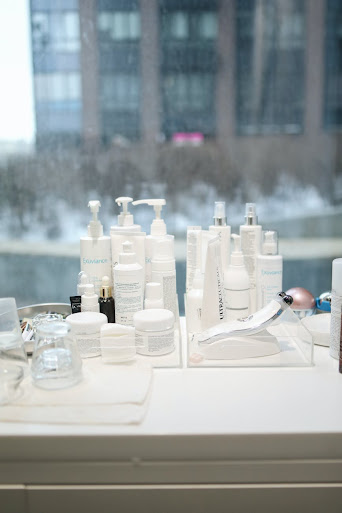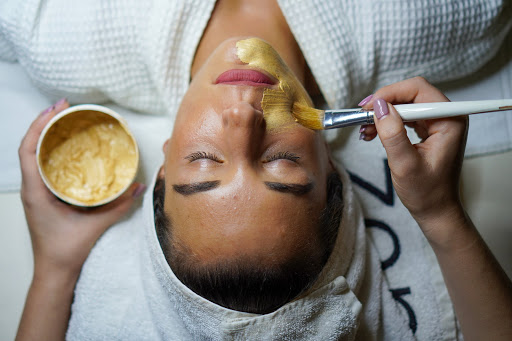Best New Facial Cleansers, Face Washes, and Makeup Removers for Every Skin Type
The industry is providing cleansing wipes and makeup removers, to help with maintaining healthy skin. To find the best face wash makeup removers there are many to choose from. Dermatologist suggest that after wearing a full day of makeup it should be removed at night to avoid clogged pores, skin irritation or premature aging.
Beauty video influencers share tips on how to cake on highlighter, foundation, eyeliner and lipsticks, so it is important to be able to melt off all the cosmetics quickly and deeply for youthful looking skin.
Natural Cleansers For Oily Skin : Olive Oil , Milk , Honey And Lemon Cleanser , Cucumber And Tomato Cleanser , Chamomile Tea , Apple Cider Vinegar , Rose Water , Gram Flour And Turmeric
Best Makeup Removers for Sensitive Skin
makeup remover cleanser drugstore, neutrogena one step gentle cleanser, makeup remover balm, cetaphil makeup remover, eye makeup remover, best face wash to remove makeup 2020, makeup remover cloth.
Best Makeup Remover for Dry Skin
Cleansers that have active ingredients are more suitable for oily skins to prevent breakouts. But they may overdry and irritate dry skin, this may make the skin appear and feel worse. Dehydrated skin may require a creamy lotion-type cleanser. These are normally too gentle to be effective on oily or even normal skin, but dry skin requires much less cleansing power. It may be a good idea to select a cleanser that is alcohol-free for use on dry, sensitive, or dehydrated skin.
Some cleansers may incorporate fragrance or essential oils. However, for some people, these cleansers may irritate the skin and often provoke allergic responses. People with such sensitivity should find cleansers that are pH-balanced cosmetic balanced, contain fewer irritants, suit many variating skin types, and do not make the skin feel dehydrated directly after cleansing.
Tight, uncomfortable skin is often dehydrated and may appear shiny after cleansing, even when no sebum is present. This is due to the tightening and 'stripping' effect some cleaners can have on the skin. One should discontinue use of a cleanser that upsets the balance of the skin; cleansers should work with the skin not against it. Finding the right cleanser can involve some trial-and-error.
Face cleansers include the following:
- Cream cleansers
- Foam cleansers
- Oil cleansers
- Clay cleansers
- Micellar cleansers
- Powder cleansers
- Bar cleansers
- Cleansing mitts / clothes / wipes
- Charcoal cleanser
- Honey Cleanser
- Vitamin C Cleanser
The term cleanser refers to a product that cleans or removes dirt or other substances. A cleanser could be a detergent, and there are many types of cleansers that are produced with a specific objective or focus. For instance a degreaser or carburetor cleanser used in automotive mechanics for cleaning certain engine and car parts.
Other varieties include the ones used in cosmetology and dermatology or skin care. In this case, a cleanser is a facial care product that is used to remove make-up, dead skin cells, oil, dirt, and other types of pollutants from the skin of the face. This helps to unclog pores and prevent skin conditions such as acne. A cleanser is the first step in a skin care regimen and can be used in addition of a toner and moisturizer, following cleansing.
Using a cleanser designated for the facial skin to remove dirt is considered to be a better alternative to bar soap or another form of skin cleanser not specifically formulated for the face for the following reasons:
Bar soap has an alkaline pH (in the area of 9 to 10), and the skin's surface pH is on average 4.7. This means that soap can change the balance present in the skin to favor the overgrowth of some types of bacteria, increasing acne.
In order to maintain a healthy pH balance and skin health, your skin must sit on the proper pH level.
Bar cleansers have thickeners that allow them to assume a bar shape. These thickeners can clog pores, leading to acne.
Using bar soap on the face can remove natural oils from the skin that form a barrier against water loss. This causes the sebaceous glands to subsequently overproduce oil, a condition known as reactive seborrhoea, which will lead to clogged pores.In order to prevent drying out the skin, many cleansers incorporate moisturizers.
Non-setting facial masks include warm oil and paraffin wax masks. These different forms are made to suit different skin types (e.g., oily or dry), and different skincare goals or needs (e.g., moisturizing, cleansing, exfoliating). Clay and mud masks suit oily and some "combination" skin types, while cream-based masks tend to suit dry and sensitive skin types.

Shea butter is mainly used in the cosmetics industry for skin- and hair-related products (lip gloss, skin moisturizer creams and emulsions, and hair conditioners for dry and brittle hair). It is also used by soap makers and massage oil manufacturers, typically in small amounts, because it has plenty of unsaponifiables, and higher amounts result in a softer soap that has less cleaning ability.
Some artisan soap makers use shea butter in amounts to 25% – with the European Union regulating the maximum use around 28%, but it is rarely the case in commercially produced soap due to its high cost compared to oils like palm oil or pomace (olive oil). It is an excellent emollient for dry skin. No evidence shows it is a cure, but it alleviates the pain associated with tightness and itching.
Natural skin care uses topical creams and lotions made of ingredients available in nature.Much of the recent literature reviews plant-derived ingredients, which may include herbs, roots, flowers and essential oils,but natural substances in skin care products include animal-derived products such as beeswax, and minerals. These substances may be combined with various carrier agents, preservatives, surfactants, humectants and emulsifiers.

Dermatological research suggests that the bioactive ingredients used in cosmeceuticals have benefits beyond the traditional moisturizer (e.g., Chen et al., 2005; Zettersten, Ghadially, Feingold, Crumrine, & Elias, 1997).However, despite reports of benefits from some cosmeceutical products, there are no formal requirements to prove that these products live up to their claims.
Biocompatible and environmentally friendly natural compounds have the potential to provide materials with photoresistant and thermoresistant properties.
Dehydroabietic acid (DAA), a naturally occurring diterpene resin acid, "has lifespan extension effects in Caenorhabditis elegans, prevents lipofuscin accumulation, and prevents collagen secretion in human dermal fibroblasts. We found that these anti-aging effects are primarily mediated by SIRT1 activation." DAA may activate SIRT1 enzymatic activity, which may have a preventive effect against the aging process.
Masks are removed by either rinsing the face with water, wiping off with a damp cloth, or peeling off of the face. Duration for wearing a mask varies with the type of mask, and manufacturer's usage instructions. The time can range from a few minutes to overnight. Those with sensitive skin are advised to first test out the mask on a small portion of the skin, in order to check for any irritations. Some facial masks are not suited to frequent use. A glycolic mask should not be used more frequently than once a month without the risk of burning the skin.
A facial is a family of skin care treatments for the face, including steam, exfoliation, extraction, creams, lotions, facial masks, peels, and massage. They are normally performed in beauty salons, but are also a common spa treatment. They are used for general skin health as well as for specific skin conditions. Types of facials include European facial, LED light therapy facials, hydrafacials and mini-facials.
There are no legal definitions in the U.S. for advertising terms "natural" or "organic" when applied to personal care products.Consumers often express a preference for skin products with organic and natural ingredients.The personal skin care market based on natural products has shown strong growth. Clinical and laboratory studies have identified activities in many natural ingredients that have potential beneficial activities for personal skin care,but there is a shortage of convincing evidence for natural product efficacy in medical problems.
Some natural products and therapies may be harmful, either to the skin or systemically.People prone to allergies should pay careful attention to what they use on their skin. Dermatologists may feel that there is enough scientific evidence to assist in the selection or avoidance of particular natural ingredients.

There are different kinds of masks (e.g. cactus, cucumber, etc.) for different purposes: deep-cleansing, by penetrating the pores; healing acne scars or hyper-pigmentation; brightening, for a gradual illumination of the skin tone. Some masks are designed to dry or solidify on the face, almost like plaster; others just remain wet.
The perceived effects of a facial mask treatment include revitalizing, healing, or refreshing; and, may yield temporary benefits (depending on environmental, dietary, and other skincare factors). There is little to no objective evidence that there are any long-term benefits to the various available facial treatments.
Masks can be found anywhere from drugstores to department stores, and can vary in consistency and form.
Setting masks include: clay, which is a thicker consistency, and will draw out impurities (and sometimes, natural oils, too) from the pores; a cream, which stays damp to hydrate the skin; sheet-style, in which a paper mask is dampened with liquid to tone and moisturize the skin; and lastly, a hybrid/clay and cream form that includes small beads for removing dead surface skin cells.
A facial is a family of skin care treatments for the face, including steam, exfoliation, extraction, creams, lotions, facial masks, peels, and massage. They are normally performed in beauty salons, but are also a common spa treatment. They are used for general skin health as well as for specific skin conditions. Types of facials include European facial, LED light therapy facials, hydrafacials and mini-facials.
Reference: en.wikipedia.org/wiki/Cleanser - Images: Pexels - en.wikipedia.org/wiki/Category:Skin_care - skincare.com/article/makeup-remover-vs-cleanser
Non-Toxic Skincare - Cruelty Free -Vegan Beauty Products - Natural Haircare Products
Sunscreen for darker skin tones people of color - Unsun Cosmetics - Katonya Breaux
Beneath your mask - Dana Johnson
Beauty Bakerie - Cashmere Nicole







